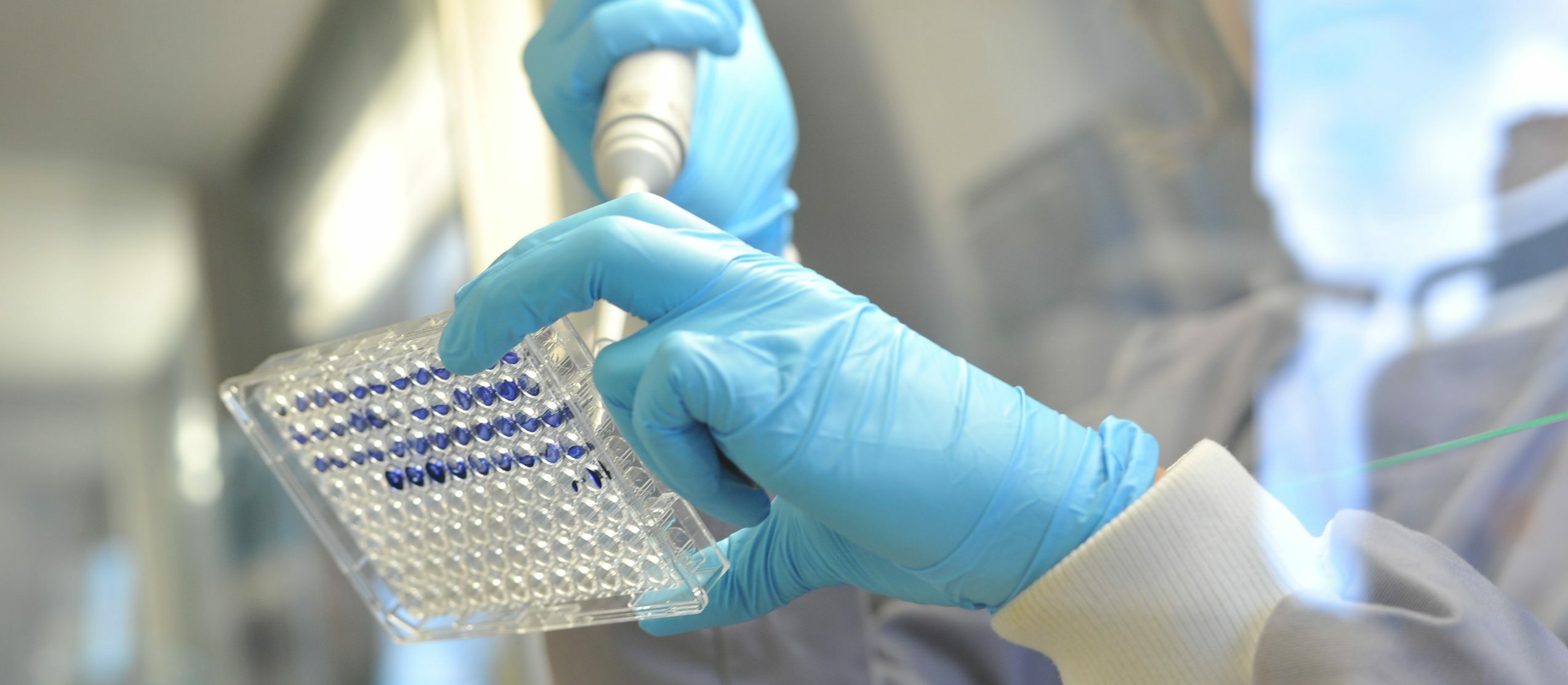
11 Jan 2019 Research
Lymphoma: Understanding relapse and treatment resistance
What is this research looking at?
Our immune system is remarkable. It is made up of many different types of immune cells that work together to protect the body from infection by pathogens such as bacteria, viruses and parasites.
We are investigating what happens when a certain type of cell in the immune system, known as B cells, starts growing out of control and develops into blood cancers such as leukaemia, lymphoma and myeloma.
We want to know what happens when B cells mature normally from precursor cells in the bone marrow and discover what has gone wrong when they turn into cancer cells instead.
Considerable success has been achieved in the treatment of lymphoma. However, a significant unmet need remains: roughly 40% of patients either do not respond to treatment or the condition recurs after treatment. Currently, our ability to predict which patients will fail treatment is poor.
By taking a detailed look at B cells as they develop and specialise, we can spot small groups of dangerous cells that are particularly likely to turn into cancer and identify the genetic faults that drive B cells to grow out of control.
We are using our knowledge to create new models for the development of B cells and blood cancers in the lab, so we can find new ways to treat or even prevent these deadly diseases.
Our research uses a model of lymphoma to test the response to treatments and development of resistance. A main advantage of the model is that we can interrogate these questions on a well-defined scenario and can perform iterative tests and predictions. Further, the model generated in this project will allow initial testing of novel treatments.
What could this mean for people with leukaemia?
This research could inform the medical decision of when to use combination and novel therapies for patients with a higher probability of developing resistance to standard treatment, alongside bringing safer treatments to patients.
Official project title: Development of a model system to study diffuse large B cell lymphoma clonal evolution
Related posts
30 November 2023
Leukaemia UK invests in next generation of blood cancer trial leaders
This week, aspiring chief investigators of future cutting-edge blood cancer clinical trials took to Birmingham for the DIDACT Foundation’s inaugural Clinical Trials Workshop – an event funded by Leukaemia UK….
19 September 2023
“Fundraising never tasted so good!”: Star-studded evening raises over £235,000 for life-saving leukaemia research
Chefs and celebrities mingled at The Dorchester last night for a gastronomic spectacular in aid of Leukaemia UK, raising over £235,000 to support world-class research into the devastating disease. Who’s…
12 December 2022
Widespread coverage of new leukaemia therapy shows promise in first trial patient
As you may have seen in the news over the weekend, a clinical trial investigating a new leukaemia treatment has shown promising results. As part of the trial, funded by…
30 January 2025
“Leukaemia changes everyone’s life.”: Chris Corbin OBE announced as a Leukaemia UK patron
The renowned restauranteur Chris Corbin OBE has been announced as a patron for blood cancer charity Leukaemia UK. Coinciding with the 30th anniversary of the stem cell transplant which saved…